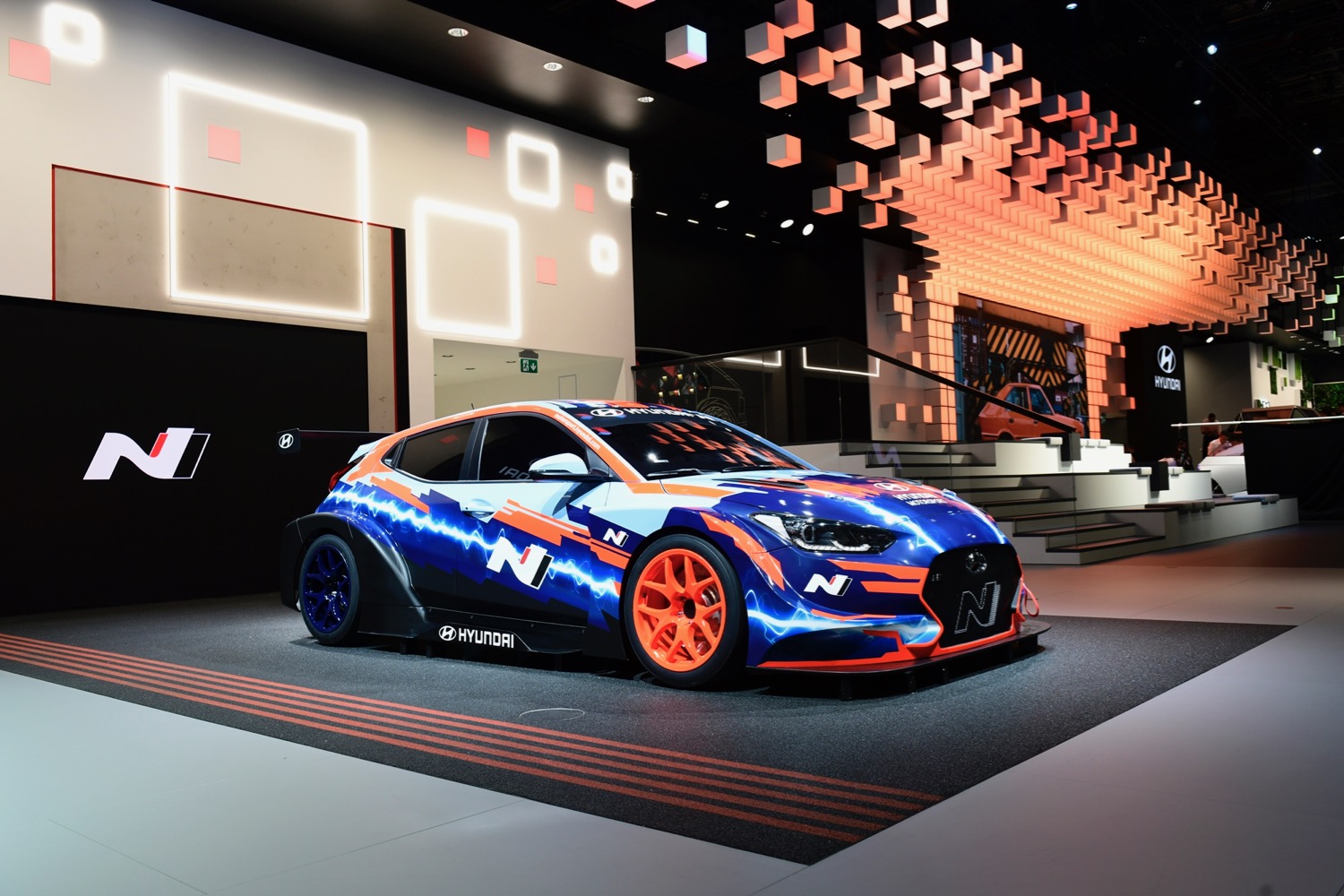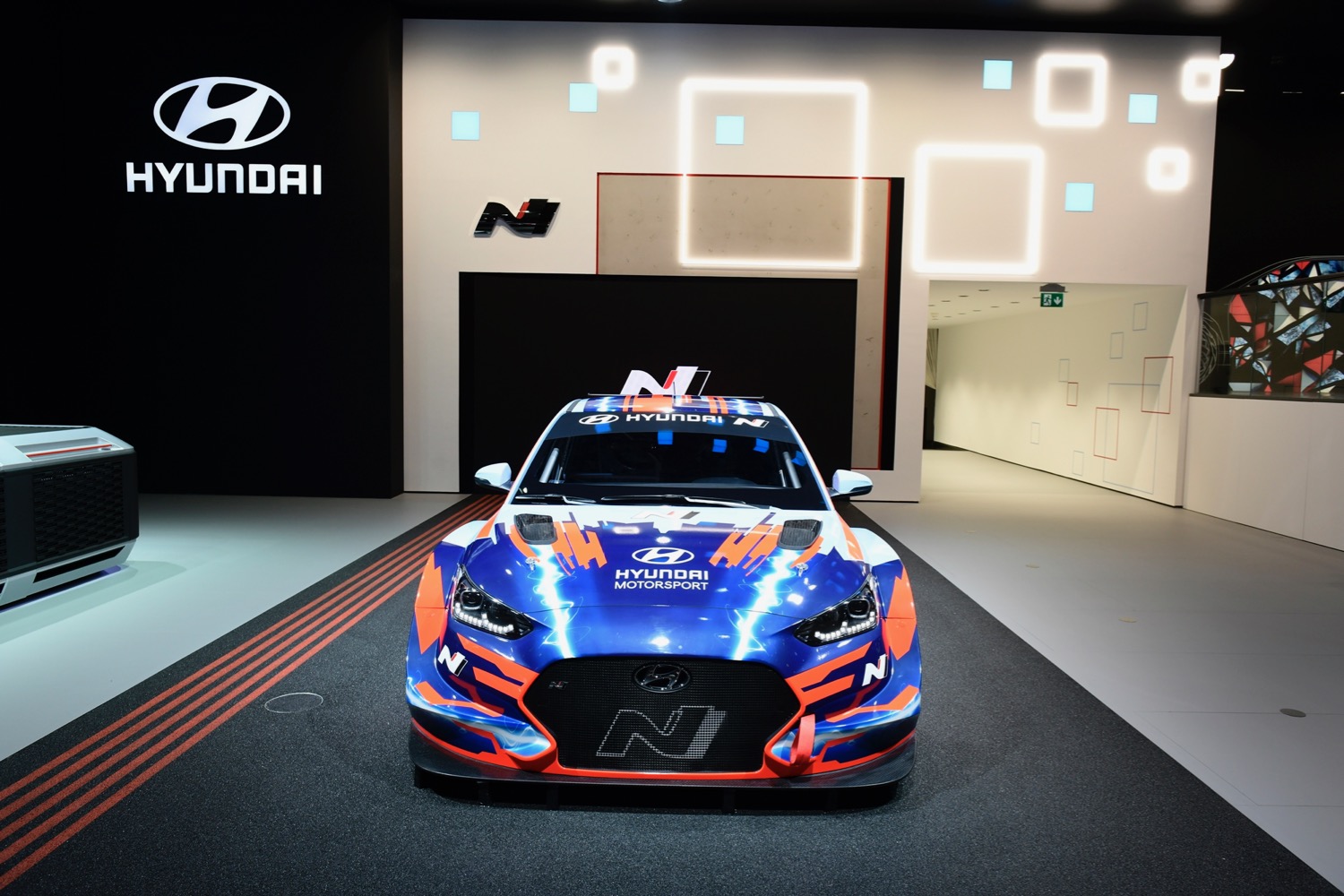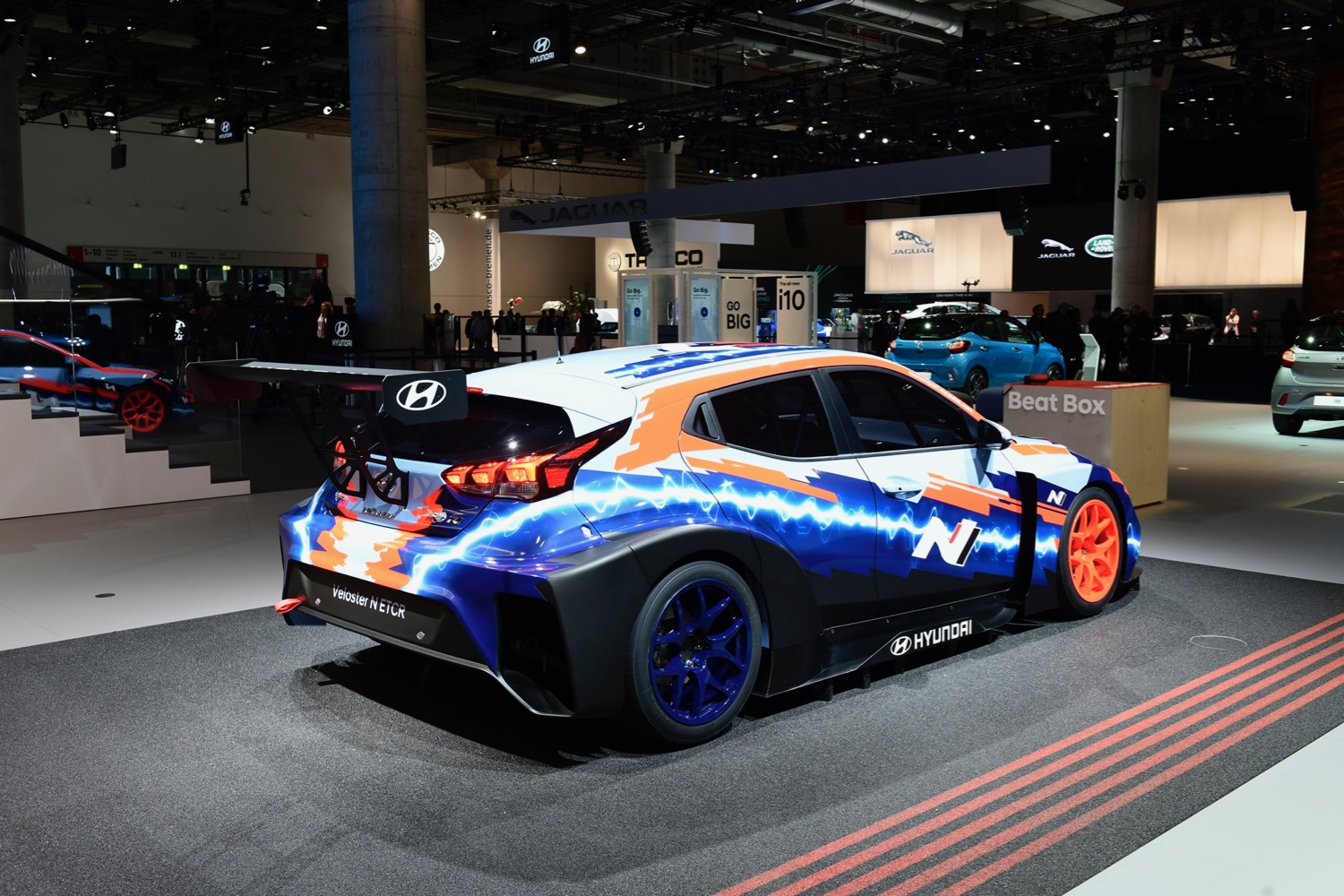Hyundai doesn’t have the motor sports history of many of its rivals, but the Korean automaker is looking to make up for lost time. At the 2019 Frankfurt Motor Show, Hyundai unveiled its first all-electric race car, the Hyundai Veloster N ETCR, which will race in a new all-electric series beginning in 2020.
The Veloster N ETCR is basically an electric version of an existing Hyundai race car. Hyundai turned its Veloster N hot hatchback into the Veloster N TCR racer to compete in TCR, a relatively new class for race cars based on affordable production models. Hyundai modified the Veloster N TCR with an electric powertrain for the new, all-electric ETCR championship, which will presumably feature electric cars from other manufacturers as well.
While the TCR race car shares a substantial amount of DNA with the Veloster N road car, the electric ETCR version takes things in a different direction. The stock Veloster N uses a front-mounted turbocharged four-cylinder engine to drive the front wheels. The Veloster N ETCR has a mid-mounted electric motor driving the rear wheels. That was done to satisfy ETCR rules, Hyundai said in a statement, but it should also offer performance benefits. That’s why supercars like the McLaren 720S have a mid-engine, rear-wheel drive layout, after all.
Hyundai did not release any performance specifications, but we can see from photos that the Veloster N ETCR has the pumped-up bodywork and massive rear spoiler of a typical race car, which should improve aerodynamic downforce. The car was designed and built at Hyundai’s motor sports facility in Alzenau, Germany, and completed its first shakedown in August 2019. Hyundai plans to follow that up with a more thorough testing program ahead of the car’s racing debut in 2020.
Hyundai isn’t the only automaker unveiling an electric race car at the 2019 Frankfurt Motor Show. Opel is showing off an electric rally car that will compete in Europe starting in 2020. Elsewhere, Formula E is attracting big-name automakers like Porsche, and is planning to launch a companion electric off-road racing series. An electric rallycross series is also in the works, and the Volkswagen I.D. R electric car has already set records on three continents.
Updated on September 11, 2019: Added photos and full details of the car.






